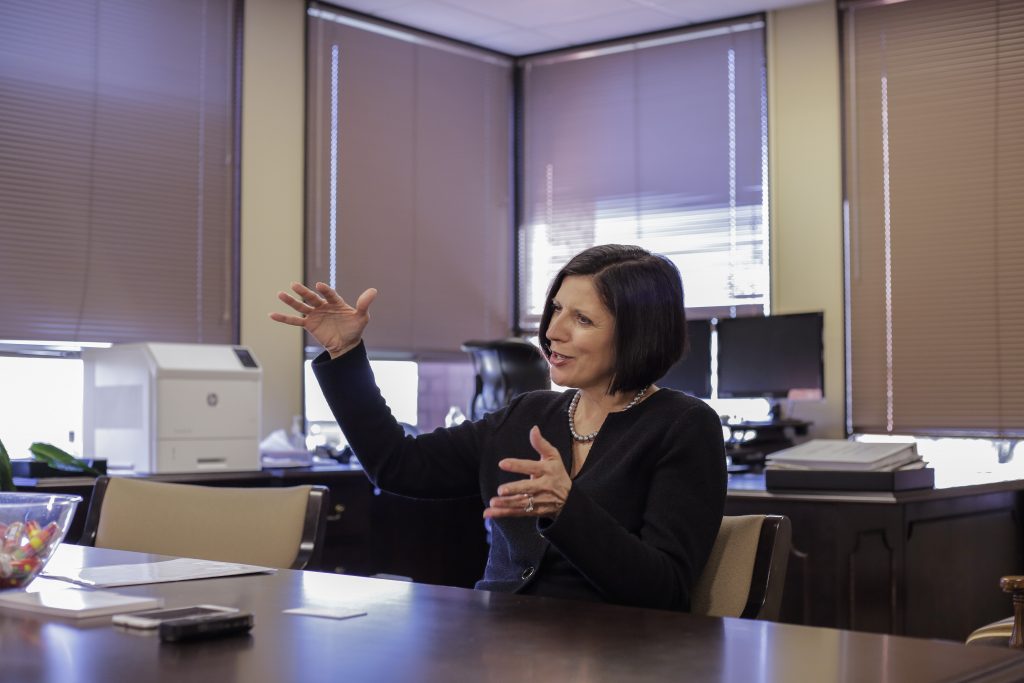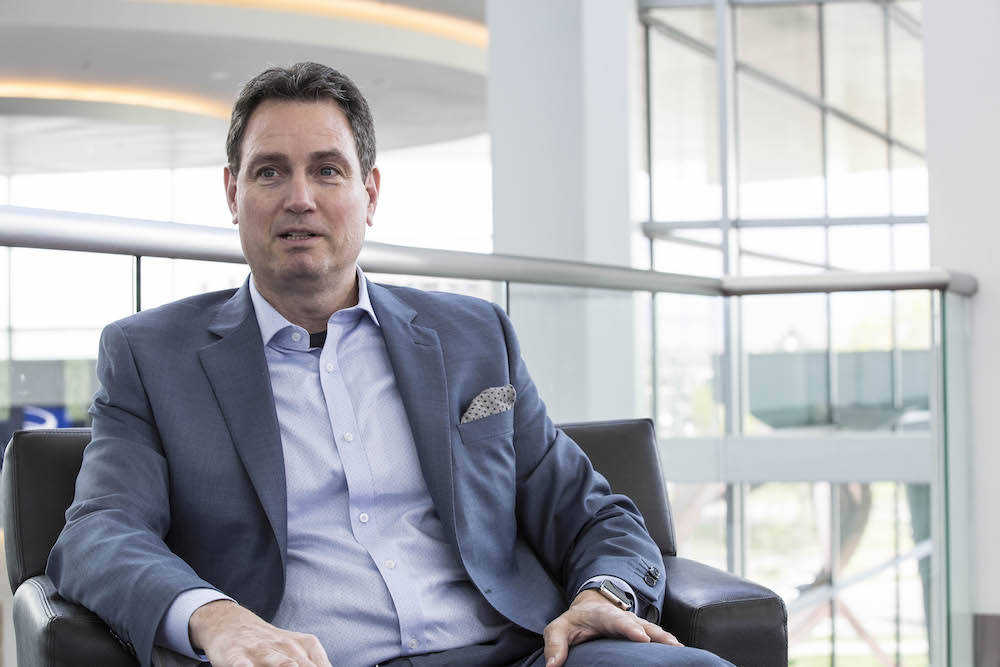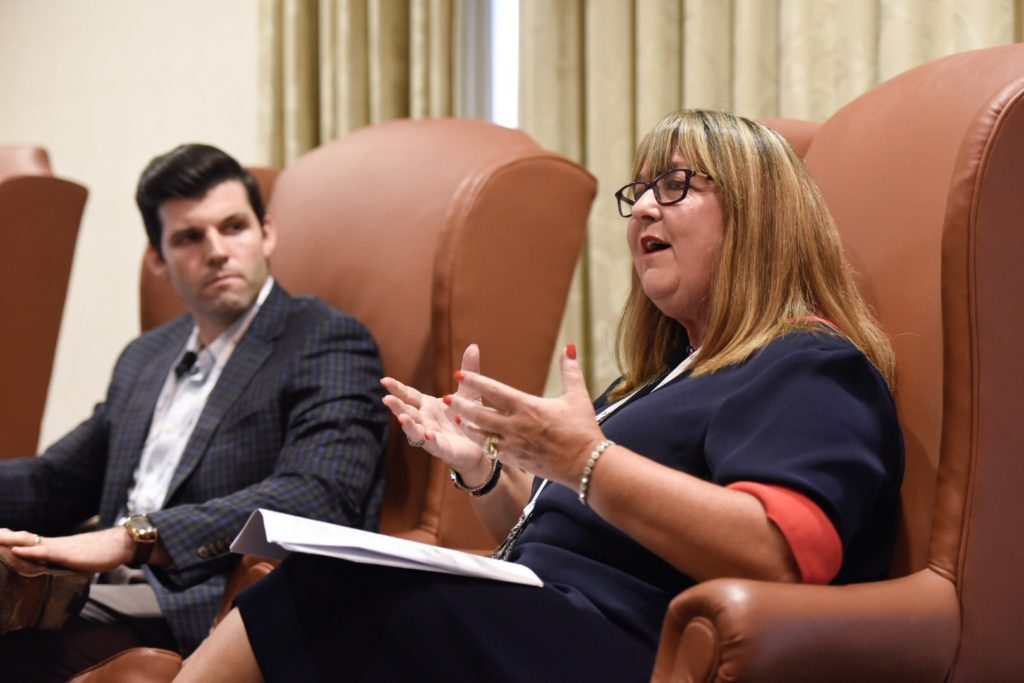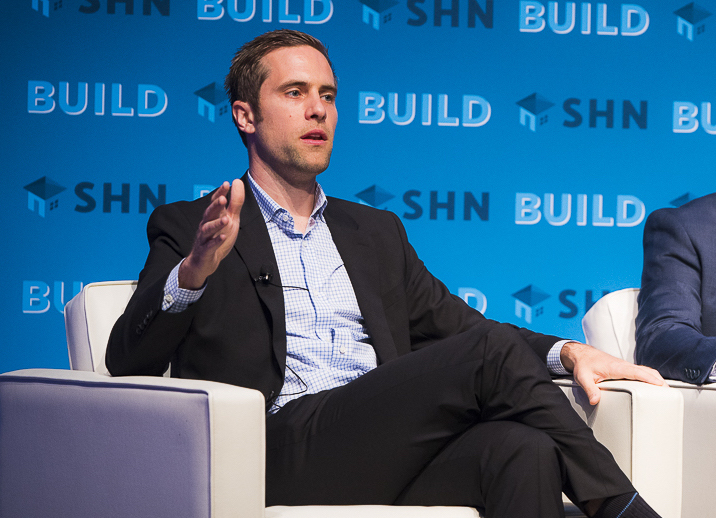Though the year is new, the top issues worrying the industry’s leaders are not — particularly the workforce crisis.
Staffing is still top-of-mind for executives at companies such as Brookdale Senior Living (NYSE: BKD), National Health Investors (NYSE: NHI) and Senior Star. Labor expenses are climbing for many senior living companies across the U.S., and showing no sign of easing anytime soon. Perhaps the starkest description of the challenge came from Danny Stricker, President of Ascension Post-Acute Services: “While we think we have workforce challenges now, we’re just in the first inning.”
Meanwhile, there are other concerns on the horizon, from political and economic uncertainties to the deterioration of CapEx-starved senior living buildings — an issue that LCB CEO Michael Stoller is passionate about. “I cannot possibly emphasize how much less than enough is being done,” he said.
But while many of the problems are still the same as they have been in recent years, the competitive landscape is quickly evolving. Senior living providers and owners expect 2020 to be a year filled with as many opportunities as challenges. These opportunities include troubled assets hitting the M&A market at attractive prices.
To learn more about how senior living executives are feeling heading into the new year, Senior Housing News connected with a handful of large or notable industry players. What follows is the first part of a two-part series sharing those responses:
Cindy Baier, President and CEO of Brookdale Senior Living:
Unemployment being at a 50-year low and the cost and availability of labor are my biggest concerns. It is becoming much harder to keep communities appropriately staffed without having to rely heavily on overtime and contract labor. I expect that this trend will continue into 2020 and will be the hardest issue that we have to face.
As always, attracting, retaining and engaging nurses and CNAs is difficult, but the ability to attract and retain dining staff is also a real challenge that we are addressing.
I am most excited about the reduction in the number of new communities that are under construction/opening around Brookdale communities.
Brookdale’s top priorities for 2020 include:
1. Attracting, engaging, developing and retaining a high-quality workforce.
2. Growing RevPAR by focusing on improving occupancy while charging a market appropriate rate.
3. Focusing on the quality of the resident/patient and family experience.
 Brookdale CEO Cindy Baier for AMN
Brookdale CEO Cindy Baier for AMNEric Mendelsohn, President and CEO of National Health Investors:
We recognized a couple of years ago that the industry headwinds caused by new construction and wage inflation/employee turnover were not fleeting issues, and so we have been vocally less optimistic about the near-term fundamentals than several of our peers. Unfortunately, we don’t really see much improvement in the macro trends, at least through the first half of 2020.
New deliveries will continue to challenge occupancy which in turn will hold rate growth to just above inflationary levels. And, while we expect wage inflation to moderate from the mid- to high-single digits into the low- to mid-single digits, employee retention will still be a 2020 theme. This will create pockets of opportunity where inexperienced operators and underfunded projects reach a point where lenders take them back and market finished projects at below construction cost. We are already starting to see this phenomenon.
Fortunately, we think our early recognition of these pressures helped us to be more proactive with our operators sooner rather than later. That has made for some really difficult discussions over the last 12 months, but ultimately puts us in a better position as we move into 2020. So we feel that at the local level that our operators should gain share. Our longer-term outlook remains bullish so we expect to continue deploying capital at a healthy pace in the new year.
Where my crystal ball is less clear is on larger national issues that may have a trickle down effect to senior housing like the election and the economic cycle. Regardless, we’ll remain disciplined and opportunistic in the event there is some market disruption. Well-capitalized REITs like NHI can thrive in turbulent markets.
 NHI CEO Eric Mendelsohn for AMN
NHI CEO Eric Mendelsohn for AMNAnja Rogers, CEO of Senior Star:
What I’m most worried about and excited about as we head into the New Year is the same: Senior Star associates.
I firmly believe that the senior living industry needs to stop focusing on occupancy as the central barometer of success and instead concentrate on NOI. The way to improve NOI has everything to do with a unique alignment of values, purpose, respect, trust, and love. When all associates understand that the most valuable form of currency that moves and influences positive outcomes is respect, success is near.
In 2018, one of our more radical moves was to change our culture from a resident-centered to an associate-focused culture. We are now poised to bring my vision of two years to light; to transform our HR department from a traditional department to one that centers on illuminating the associate experience. Associates are our only priority for 2020, for if we remain focused on them, with love, all else will lift!
One more thing, our industry needs to help each other and rally together to be perceived as top-of-class among any industry.
 Senior Star CEO Anja Rogers for AMN
Senior Star CEO Anja Rogers for AMNMichael Stoller, Managing Partner and CEO of LCB Senior Living:
There is an abundance of capital available to senior housing, which means there will continue to be some ill-advised properties built. There will continue to be a widening gap between the value of older properties and newer properties. The amount of annual CapEx is far too low to keep up with technology advances, consumer expectations and the marketability of buildings. I cannot possibly emphasize how much less than enough is being done.
Staff shortages will continue until the industry members figure out how to truly attract labor from other business sectors. Wage increases continue, in specific roles and submarkets, not across the board in roles geographically, but specific to individual building locations.
Interest rates will apparently continue to be almost historically low.
Many submarkets are fully served, nearing saturation or already saturated. Companies will have to adapt and embrace change in order to succeed and move forward in this challenging environment. Some will not. The best will self-analyze, admit their varied errors, work to fix them and come out far stronger. Some will not.
I am excited about the challenges and the opportunities ahead and also concerned about the industry and long term regulatory change.
Kai Hsiao, CEO of Eclipse Senior Living:
So long as the senior living industry continues to exclude active adult/55+ from the senior living data set, we’re understating penetration, but also new supply.
Said another way, the growth of active adult/55+ will, in the short-term, extend the new supply hurdle we are currently trying to overcome; and in the long-term, increase the average age of residents moving into independent living and assisted living/memory care, which means we’ll need to be prepared for even higher-acuity residents and greater workforce demands.
 Kai Hsiao (photo for AMN)
Kai Hsiao (photo for AMN)Adam Kaplan, Founder and CEO of Solera Senior Living:
Most worried:
I’m worried that we will struggle to find a better way as a company and/or industry to recruit, develop and engage front-line clinical staff. The adverse effects of agency usage go far beyond the financial implications. We can’t afford to have staff serving our residents that fail to live our core values and that aren’t properly trained on our standards of care. Without a quality solution properties will suffer very serious financial and reputational consequences.
Most excited:
We have been pretty stagnant for many years. Now the adult children are demanding more. I am excited that leaders in the industry are embracing innovation around design, customer experience and technology. We will be watching closely to see what will succeed, what will fail and what the future may have in store.
Priorities:
We will invest a lot of our energy and focus into attracting and developing the best talent across all levels of our organization and building a high-performing, values-driven culture.
 Solera CEO Adam Kaplan for AMN
Solera CEO Adam Kaplan for AMNDanny Stricker, President of Ascension Post-Acute Services:
It is hard to believe that 2020 is here, kicking off what will be a transformative decade that will both challenge and reward our industry and health care overall. For organizations that continue to double down on quality and service first, opportunities will be abundant to participate in the care of older adults where they choose to call home.
For Ascension Living, our 2020 priorities are:
1. Continue to invest in retention and growth opportunities for our associates, especially the leaders in our communities. While we think we have workforce challenges now, we’re just in the first inning.
2. In 2020, Ascension Living will begin to implement a strategic repositioning plan that is anchored in both our mission and our consumer expectations for services. We will start the first phase of bridging our portfolio to what consumers want — not what we think they need. A colleague of mine said it best: “Our consumers have started a movement away from health care-focused choices and towards lifestyle continuation in the setting they choose, up to the end-of-life.”
3. Ascension Living will be a key partner as Ascension implements an integrated post-acute continuum of care throughout the country, which strives to create an integrated experience that relieves the stress and anxiety that our consumers face today. The need for successful transitions of care are going to be heightened in 2020, as more organizations seek to take on more value-based care contracts.
Mary Lynn Spalding, President and CEO of Christian Care Communities:
Nursing and front-line staff shortages will continue to impact post-acute care. As an industry, we need our potential workforce to further appreciate the wisdom we can all gain from our elders. As leaders we all need to do everything we can to get to know our teams and offer solutions to the challenges they face in child care, housing and transportation. Team retention is critical!
Elders that will be interested in using our services are going to grow at an even more rapid pace. Our experience tells us that they are looking for a vibrant independent lifestyle with the option to easily access higher levels of care when needed.
Companies featured in this article:
Ascension Living, Brookdale Senior Living, Christian Care Communities, Eclipse Senior Living, LCB Senior Living, National Health Investors, Senior Star, Solera Senior Living


